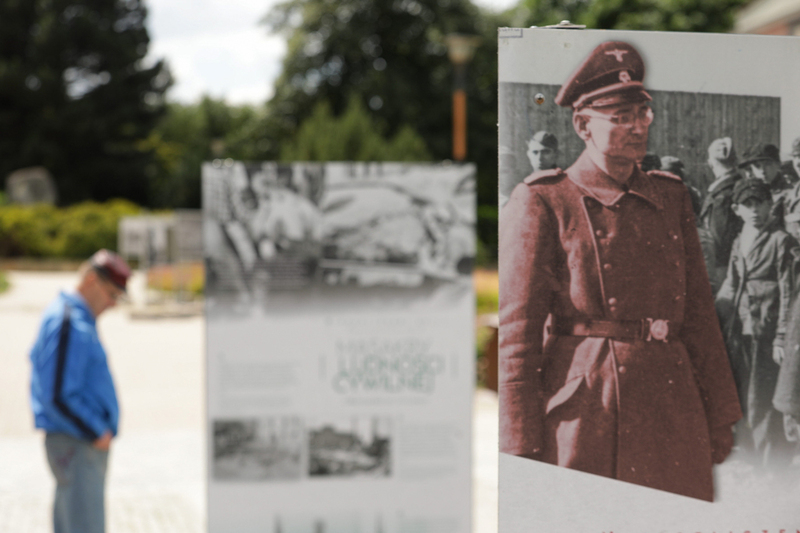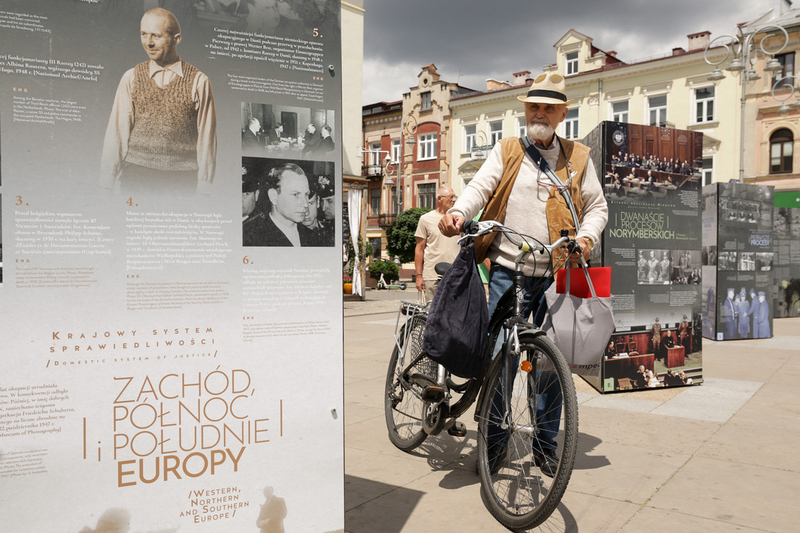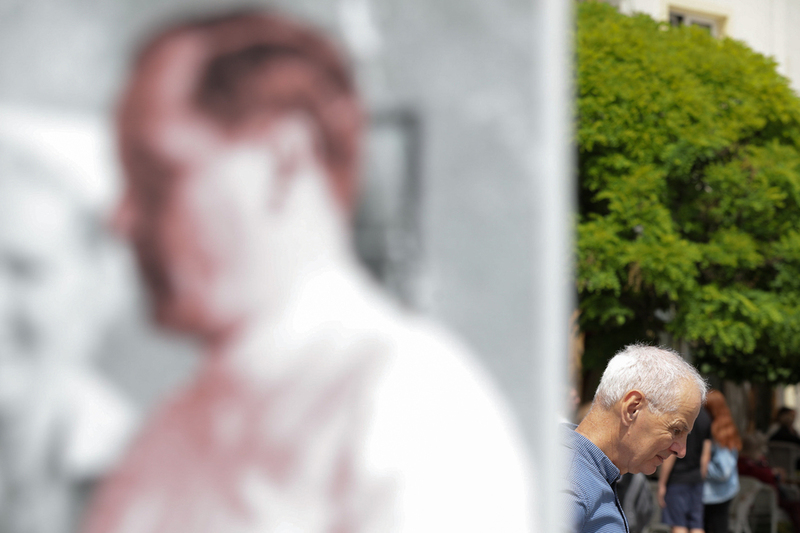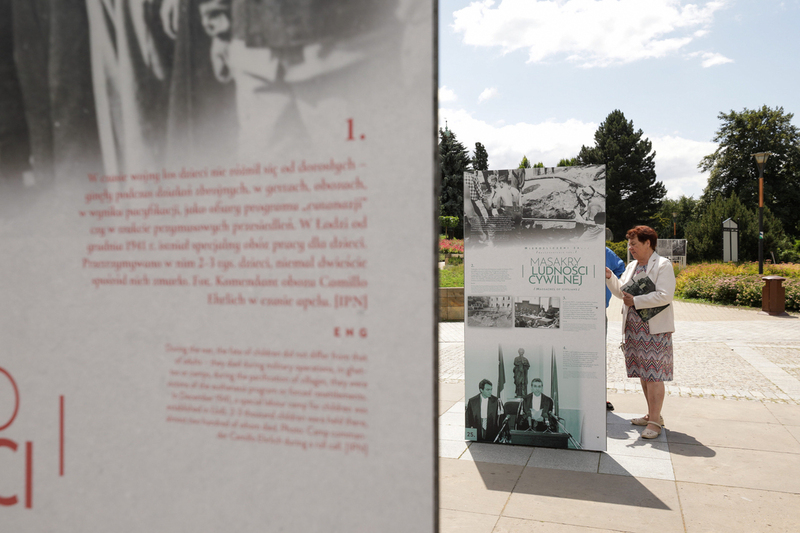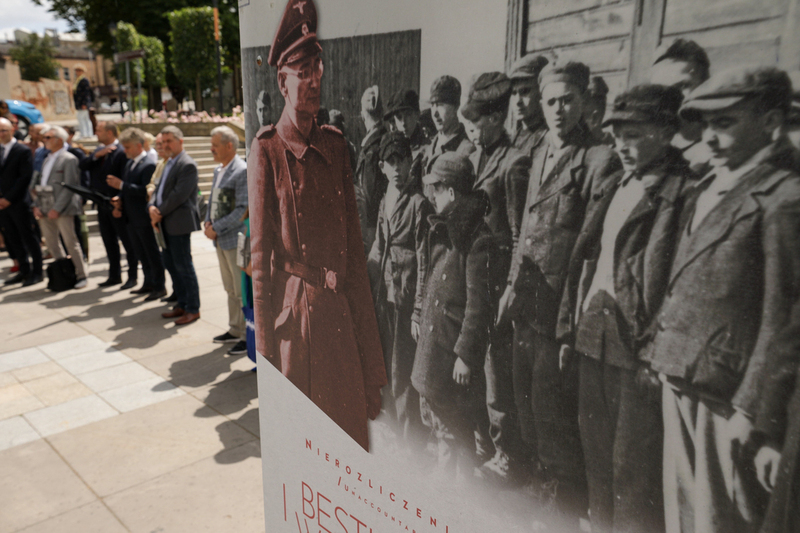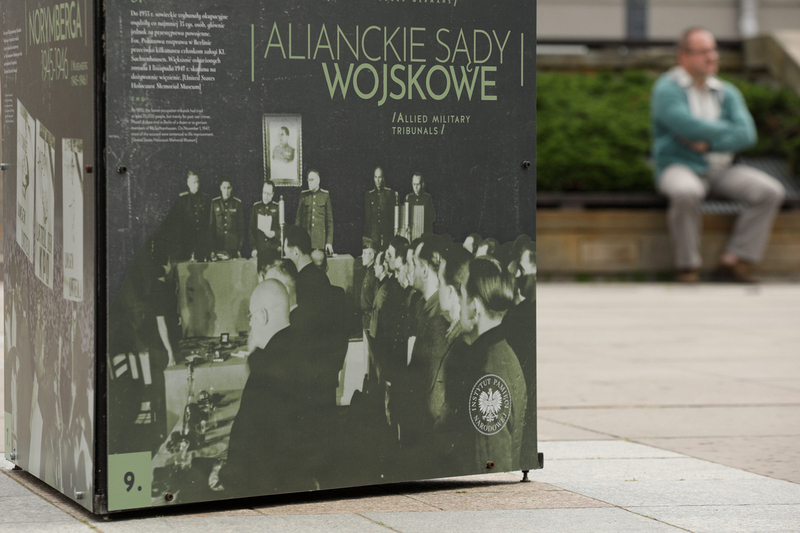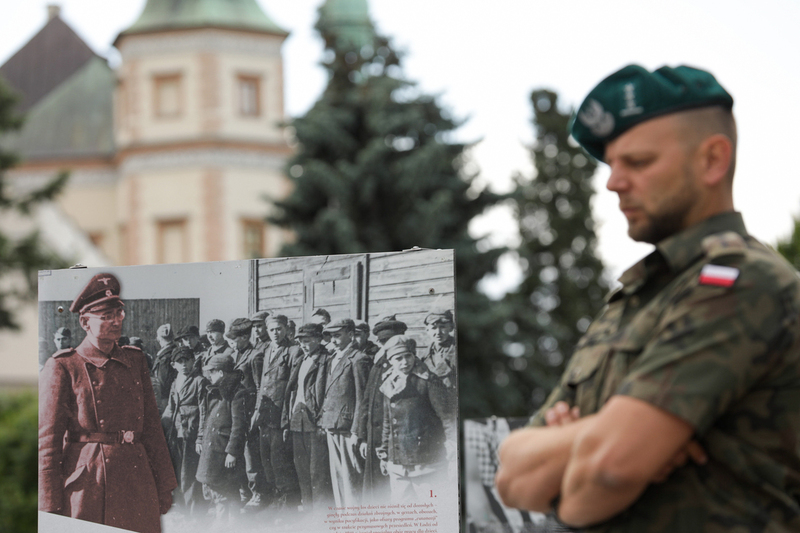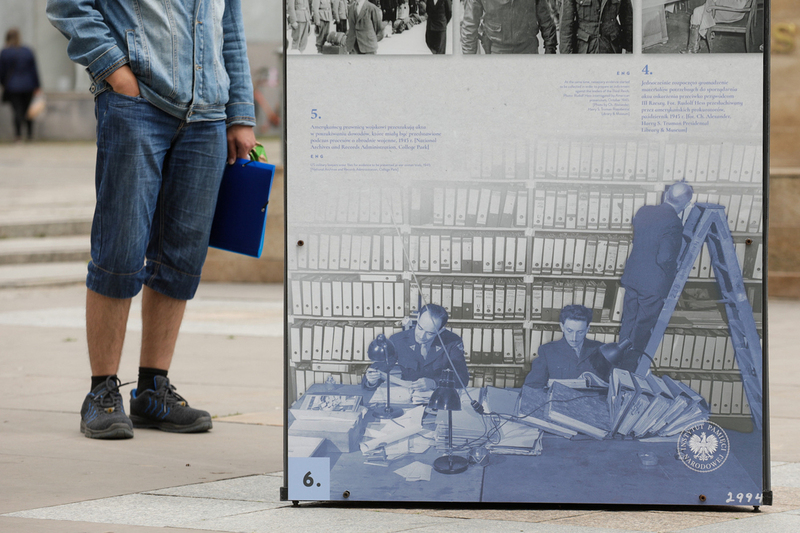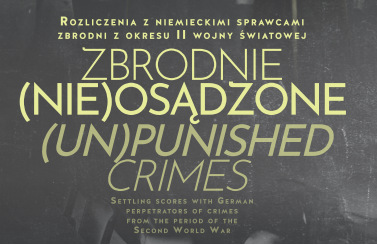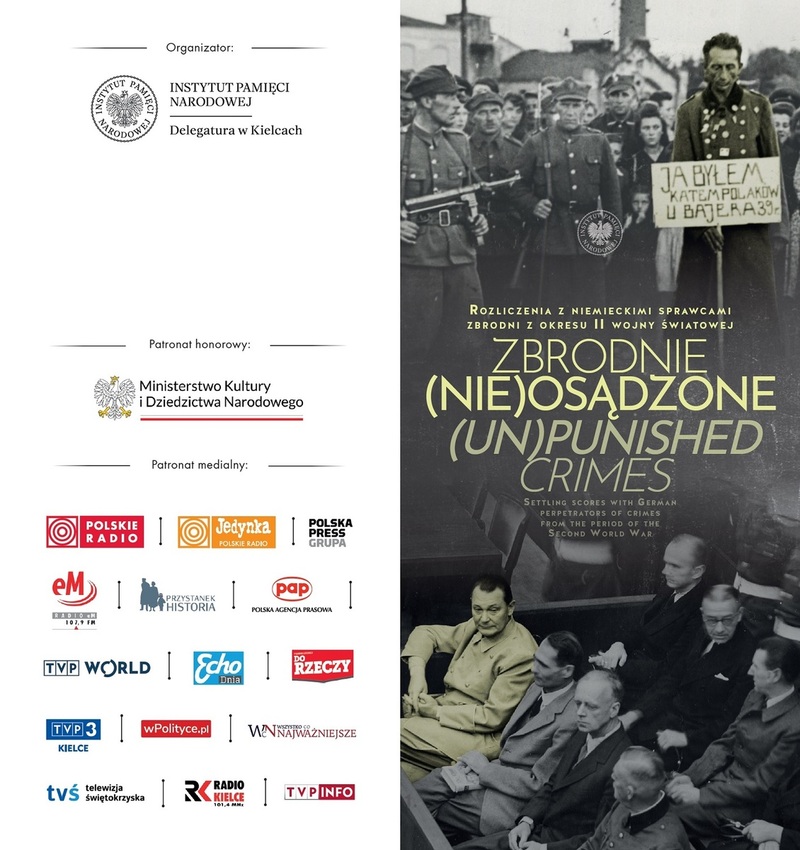On 28 June 2023, at Plac Artystów [Artists' Square] in Kielce the President of the Institute of National Remembrance Karol Nawrocki, Ph.D., opened the exhibition entitled: (UN)PUNISHED CRIMES. Settling scores with German perpetrators of crimes from the period of the Second World War. The exhibition has received honorary patronage from Polish Ministry of Culture and National Heritage.
Opening the exhibit, Karol Nawrocki, Ph.D., said, Unpunished Crimes make the world a worse place . . . Historians estimate that in WW2 hundreds of thousands of German Reich agents were responsible for 13 million non-combatant deaths . . . West Germany indicted 87,000 of them, convicted 6,500, but only 182 to life.
The subject of settling accounts with German perpetrators of World War II crimes was discussed in an exhibition prepared by the IPN Delegation in Kielce. The exhibition consists of 27 boards, and it is divided into two parts. The first one shows the range of the settlements in various European countries. This includes West and East Germany, and Austria. The second part features cases of crimes and perpetrators who were never brought to justice. The descriptions were prepared both in Polish and English.
The prosecution and punishment of criminals has been portrayed through photographs. Shots from courtrooms, documentation of crimes, or post-war photos of criminals who escaped justice come from various sources: Polish and foreign archives, museums, libraries and news agencies.
German crimes committed in occupied Poland are an important subject of research and educational activity of the IPN. The prosecution of crimes committed against the Polish nation is a statutory task of the IPN Commission for the Prosecution of Crimes against the Polish Nation.
